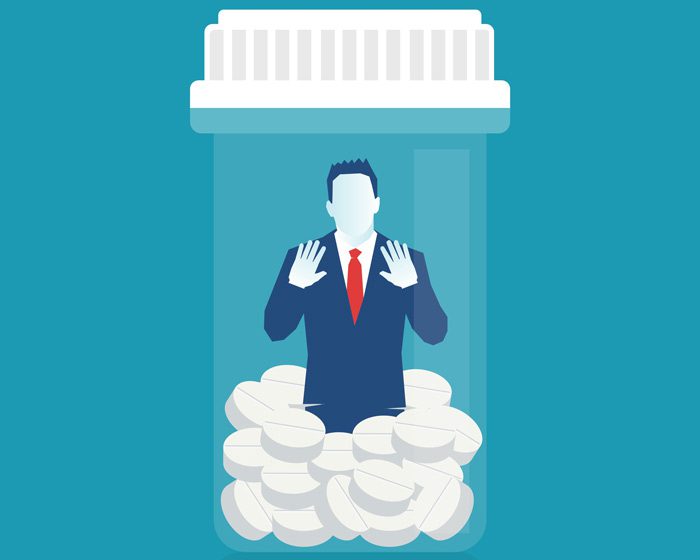 While anxiety disorders can greatly affect a person’s quality of life, the medications used to treat these conditions are not without risks. Valium, one of the most popular benzodiazepines, carries a high potential for abuse and addiction.
While anxiety disorders can greatly affect a person’s quality of life, the medications used to treat these conditions are not without risks. Valium, one of the most popular benzodiazepines, carries a high potential for abuse and addiction.
Valium: A Little History
Valium was first patented in 1959. Throughout the 1960s and 1970s, it was widely prescribed for anxiety, sleep disorders, and panic attacks. Frequently stereotyped as a quick fix for bored and unhappy housewives, it was immortalized by the Rolling Stones in their 1966 hit single “Mother’s Little Helper“.
The popularity of Valium began to wane when physicians became more aware of the drug’s addictive potential. Today, Valium is considered a Schedule IV controlled substance because of its potential for abuse and the risk of physical and psychological dependence. It is recommended only for short-term use, and its safety or effectiveness hasn’t been clinically proven beyond four months.
How Valium Affects the Mind & Body
Valium is also known by the generic name diazepam and is generally prescribed in 2 mg, 5 mg, or 10 mg tablets. When users are abusing Valium, they may choose to crush and snort, smoke, or inject the drug. This approach bypasses the blood-brain barrier and lets the drug enter the bloodstream immediately. It increases the negative effects of the drug, as well as the risk of an overdose.
Additionally, people who are abusing Valium often mix the drug with alcohol or opioids to intensify its effects. This greatly increases the risk of a fatal overdose. Benzos, opiates, and alcohol are all respiratory depressants. High doses can slow breathing to the point where a person loses consciousness and dies.
The effects of Valium are similar to those associated with other benzos such as Ativan, Halcion, Klonopin, Librium, Versed, and Xanax. When someone is taking Valium, they may experience:
- Blurred or double vision
- Nausea or vomiting
- Drowsiness
- Dizziness
- Muscle weakness
- Memory problems
- Lack of interest in sex
Valium can slow reaction time and impair judgment. People who are taking Valium should not drive or operate heavy machinery, regardless of their dosage. In fact, some studies have shown that Valium can negatively impact a person’s driving skills for as long as 24 hours after it is taken.
When Valium is taken at higher doses or on a regular basis, the drug can cause:
- Aggression
- Depression
- Hallucinations
- Seizures
- Lack of bladder control
- Impaired coordination leading to falls or accidental injuries
- Thoughts of self-harm or suicide
Signs of Addiction
Although teenagers and young adults may experiment with Valium out of the misguided belief that prescription medications aren’t addictive, most people who develop an addiction to Valium begin with a legitimate prescription. Their addiction develops over an extended period of time.
It is not always easy to determine if someone has a substance use disorder—especially when the abused substance is a prescription drug. However, the following behaviors can suggest that addiction treatment may be needed:
- Taking Valium at higher than prescribed doses or more often than what a doctor recommended
- Taking the drug without a prescription
- Visiting multiple doctors or purchasing pills on the black market to obtain a steady supply of the drug
- Requiring increasingly stronger doses to achieve the same effects
- Having cravings for Valium
- Experiencing withdrawal symptoms when unable to use the drug
- Believing Valium is necessary to feel normal
- Being unable to reduce or stop usage despite a desire to do so
- Experiencing financial problems due to the amount of money spent on Valium
- Declining performance at work or school
- Conflict in relationships with family and friends
The more behaviors a person exhibits, the greater the likelihood becomes that they will require substance abuse treatment. It is best to seek treatment as soon as a problem is identified, but there is always hope for recovery. Even after relapse, a person can seek the help they need to return to a life of sobriety.
How to Get Help
Substance use disorders are chronic illnesses that require evidence-based treatment personalized to fit individual needs. Having an addiction to Valium doesn’t make a person “weak” or lacking in willpower. It simply means that they need help to build the foundation for lasting sobriety.
At Waypoint Recovery Center, our process begins with an individualized assessment to assess a client’s needs, evaluate for any co-occurring disorders, discover and reinforce strengths, and begin the process of building rapport. Our residential treatment program provides individual, group, and family therapy, combined with 12-Step support and holistic treatments designed to heal the mind, body, and spirit. Following graduation, clients have access to continuing care and recovery management services as well as alumni programming designed to promote a connection to the recovery community while easing the transition back to independent living. With our support, you can take the first steps towards a brighter future.





